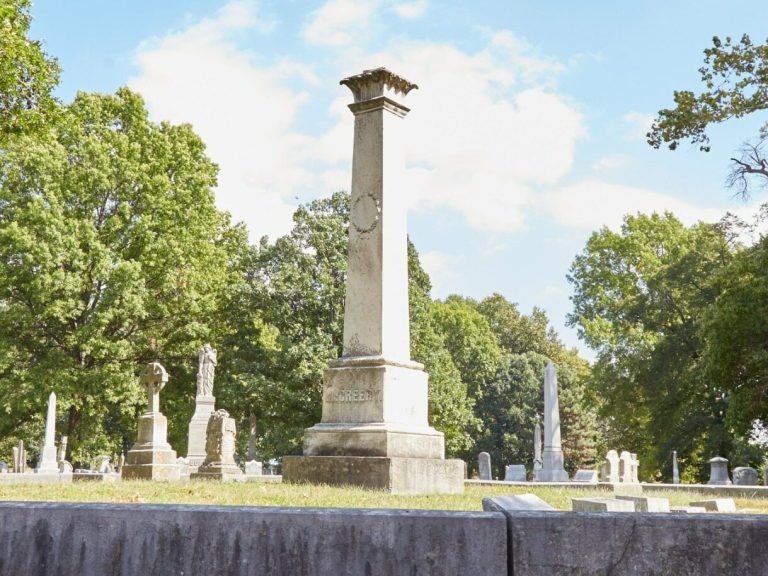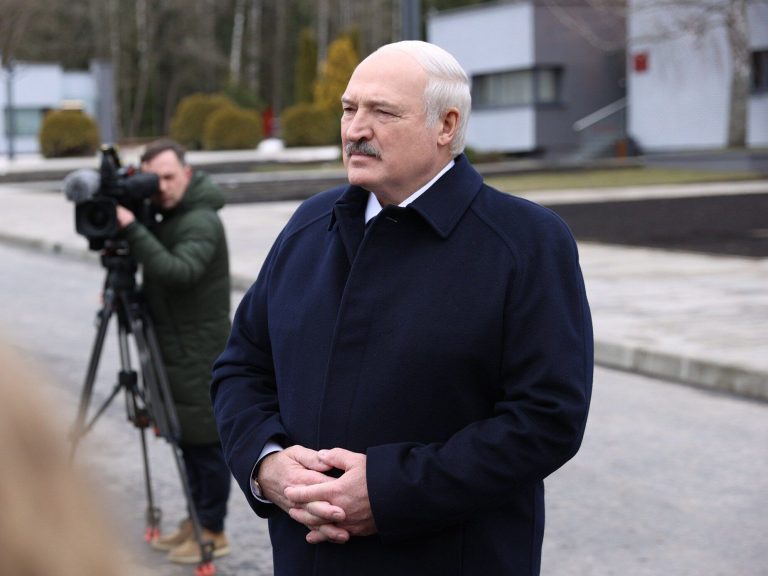From space to nature to history. These science podcasts are worth your time

Inspirational, motivating, thought-provoking, fun. Podcasts are triumphing on the Polish Internet, including those concerning science. There are so many of them in the largest applications that it can get dizzy. Here are 10 pearls – science and popular science podcasts, which are definitely worth spending your time on.
Poles love podcasts. The Tandem Media survey shows that they are currently used by nearly 31 percent. internet users. There is nothing surprising about this. Listening to podcasts is very simple and convenient – all you need is a computer or smartphone with Internet access.
It is also a great solution for all those suffering from lack of time. Reading articles or watching YouTube videos requires full attention to this one activity. With podcasts, it’s completely different. Are you stuck in a traffic jam? Are you going for a walk with your dog? Need to clean the apartment? Got a long workout ahead of you? At the same time, you can turn on your favorite podcast.
Needless to say, the word “free” plays a big role – you don’t have to pay for access to the vast majority of podcasts. What’s more, listening to the voice of the host, you can get the impression that he is talking directly to us and we are participating in a unique conversation that has been prepared only for us.
How to find valuable podcasts?
When we type in the search engine in popular applications such as Spotify or Soundcloud the password “podcast” on the screen we will see a list as long as the queue to Giewont on a summer day. Because there are plenty of podcasts on the web – from motivational, to criminal, dietary, historical, political, cultural to stories from the life of stars.
So how do you find the most valuable ones? I would like to encourage you to subscribe to science and popular science podcasts. I immediately emphasize that they have nothing to do with boring lectures read from a piece of paper by teachers or lecturers. Some stories are so captivating that it’s really hard to tear yourself away from them and stop at one episode. Here is a subjective list of the most interesting popular science podcasts.
Crazy Science
Many of us roll our eyes at the word “science”. Meanwhile, Ola and Piotr Stanisławscy prove that science can be really exciting. Their huge contribution to popularizing science has been noticed – in 2020 they received the POP Science award of the Silesian Science Festival. They also won the “Popularizer of Science” PAP Science in Poland award.
They raise very interesting issues. Their podcasts include: that bees can work at the airport and detect drug smuggling. In another episode, they refute the lies in the service of propaganda and disinformation that were used by Soviet propaganda. They also talk about sins used in the space race.
And for lovers of true crime, I especially recommend the episode in which Ola and Piotr Stanisławscy tell how science supports forensic science in an unconventional way and how plant pollen can help connect the perpetrator with the place where the victim’s body was abandoned.
Science radio
“About science with scientists” – this simple motto guides the activity of Radio Naukowe. The journalist Karolina Głowacka is behind this one of the most popular podcasts. In about an hour of talks, he gives voice to scientists who talk about current research or challenges for the future.
In this podcast, you’ll learn: what the genetic portrait of Poles looks like, what our brain has to do with onions and whether dinosaurs would have created a civilization. The author and her guests also reveal why sleep was believed to be a near-death state for centuries, and why wine was not served to children in French canteens until the mid-twentieth century.
Brain podcast
Brain, science, education, emotions, relationships – these are the topics I deal with on a daily basis – says Urszula Dąbrowska, a molecular biologist and creator of the “Podcast about the brain”. In short 20-25 minute broadcasts, we learn simple tricks and clever lifehacks on how to improve the work of our brain. The author argues that knowledge about the brain allows not only to better understand oneself and others and to act more efficiently, but above all to be happier.
Urszula Dąbrowska leans, among others, on the functioning of the psychopath’s brain. How is it that he is sometimes charismatic and sometimes extremely dangerous? Does the brain have a sense of humor? Is giving gifts just camouflaged egoism? How does it happen that we get sleepy and what does the brain do when we lose touch with the environment? – answers to these and other questions can be found in the “Podcast about the brain”.
PISM on air
Enthusiasts of foreign policy will also find something for themselves. The Polish Institute of International Relations runs its own podcast. On Spotify and Soundcloud, you will find over 600 conversations devoted to the most important events from the world.
PISM experts comment on the most pressing issues on an ongoing basis, such as the course of the war in Ukraine, tense relations between the countries of the Middle East or the growing role of China in the global economy. Thanks to 10-15 minute podcasts, you can quickly find out about the situation in the world and, by the way, be sure that you are getting your knowledge from a reliable source.
A piece of history
Political scientist, historian, publicist, professor at UKSW, former member of the Institute of National Remembrance Council, and now also the creator of a podcast. Antoni Dudek in his series of podcasts focuses on the history of Poland. As he himself emphasizes – he tells a story about our closer and more distant past without emotions and agitation.
“History can be told in many different ways and for different purposes. My channel has a motto: About history without hysteria. Therefore, I talk about the past calmly, weighing the reasons and not telling the listeners that I am telling the truth. I am only striving for it, fully aware that it is a completely unattainable goal – says the author.
Antoni Dudek tries, among others, to answer the question whether the Round Table was a bargain, a collusion of elites or a peaceful transfer of power. From the podcast we will also learn what the so-called. the Rywin scandal and why Tadeusz Mazowiecki became the first prime minister after the political breakthrough in ’89.
The historian also looked at the so-called “war above”. Was it just a personal conflict between Prime Minister Mazowiecki and the then leader of Solidarity, Lech Wałęsa? – he wonders in one of the episodes of his podcast, which has recently been breaking popularity records on the web.
I like science
Tomasz Rożek needs no introduction. Doctor of physical sciences, journalist, popularizer of science and founder of the Science To Like Foundation. Author of texts for many popular press titles, winner of journalism awards, author of books and lecturer. He can also add to his rich CV: creator of a podcast.
In “Learning To Like” he answers in an accessible way the questions that many of us wonder about, but are afraid to ask. Tomasz Rożek explains what bitcoin is, whether we are at risk of starvation, and dispels the most popular myths about juices and wonders if the heat will finally kill us.
Many episodes are devoted to space – the author of the podcast describes all the planets and reveals the greatest secrets of the Sun, the star closest to us. From “Science To Like” we will also learn how to measure the height of the peaks, what is the strength of the human body, and whether it is worth buying iodine tablets for radiation.
Naturally from the WWF
WWF is one of the world’s best-known non-governmental organizations dealing with ecology and nature conservation. Surely most of us associate the characteristic panda with the WWF logo. However, not everyone knows that the organization also runs its own podcast “Naturalnie z WWF”, which confirms the thesis that the natural world is really fascinating.
It is from this podcast that you can learn that cetaceans live in the Baltic Sea. That some of the nearly 200 lynxes living in Poland found their home on military training grounds. That despite decades of protection of the species, up to 55 elephants are killed every day. “Naturalnie z WWF” also raises extremely important issues such as forest fires or drying up of rivers – experts explain in a clear and lucid way what can happen if we do not start caring for our natural environment.
Polyhistor
“The overriding belief is that there are no simple answers, and that each topic is worth spending at least an hour on. Regardless of whether we are talking about the chances of avoiding the partitions of Poland or about the possibility of Vladimir Putin using the atomic bomb – says Dr. Bartosz Gajos, author of the podcast of the Dialogue Center Juliusz Mieroszewski Polihistor. The creator invites experts in the field of politics, history and culture to talk. What connects them? Fascination with the region of Central and Eastern Europe.
The author does not hesitate to tackle difficult topics. Together with Prof. With Jacek Tebinka, he wondered whether Poland skilfully took advantage of the outbreak of the German-Soviet war and whether in 1941 it was possible to force Joseph Stalin to recognize the border from the Treaty of Riga.
In one of the episodes, together with prof. Richard Butterwick-Pawlikowski leaned over the constitution of May 3. Could Catherine II accept it? Which country was most interested in the partition of Poland? Was Stanisław August Poniatowski a traitor? The answers to these and other historical puzzles are brought to us by the “Polihistor” podcast.
In front of the picture
Joanna Żelazińska comes to the aid of those who love art, but currently cannot go to a museum. In the podcast “In front of the painting – a museum in headphones” he discovers the secrets of the most famous galleries in the country and abroad in a fascinating way. The author shows that it is worth going to museums not only to see famous works.
A perfect example is the National Museum in Gdańsk, which attracts crowds of visitors every year thanks to the triptych “The Last Judgment” by Jans Memling. Joanna Żelazińska reveals that in the nooks and crannies of the museum, there are plenty of other works worth attention. In one of the episodes, the author tells us that “Portrait of a Gdańsk patrician” by Anton Moeller allows us to reconstruct the everyday life of a young Gdańsk woman from the end of the 16th century.
He argues that the famous Louvre, which is the world’s largest museum, is not only Leonardo da Vinci’s “Mona Lisa” and Eugene Delacroix’s “Liberty leading the people to barricades”, but also Caravaggio’s “Death of Mary”, which was initially supposed to hang in one of the chapels of the Carmelite church Barefoot in Rome. However, the painting caused great controversy due to the depiction of the mother of Jesus. She is nothing like the Maria known from other masterpieces. One of the legends said that the painter’s model was a dead prostitute fished out of the Tiber.
Polish History Museum podcast
“Always about history, always at the highest level” – this is how the Polish History Museum encourages you to listen to its podcasts. The broadcasts are divided into several categories – enthusiasts of Piast and Jagiellonian Poland, as well as the slightly more recent history of World War II or the Polish People’s Republic will find something for themselves.
The creators also touch on issues from recent history. How much truth is in the recent claims of the Kremlin spokesman and Moscow Patriarch Kirill that Russia has never attacked anyone in its history? Has Germany come to terms with its dark past, and can Central and Eastern European countries demand reparations from modern Russia? What does the well-known proverb “A Pole, a Hungarian, two nephews, both saber and glass” tell us about Polish-Hungarian relations?






